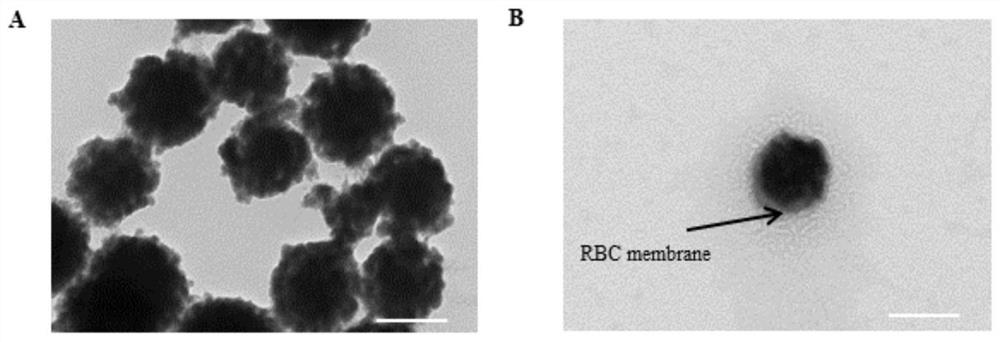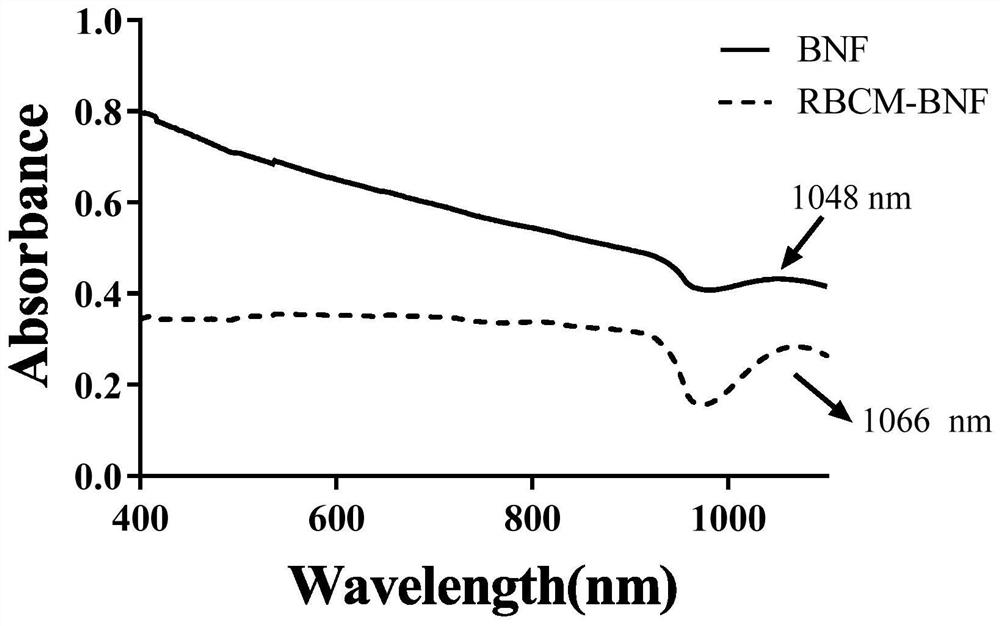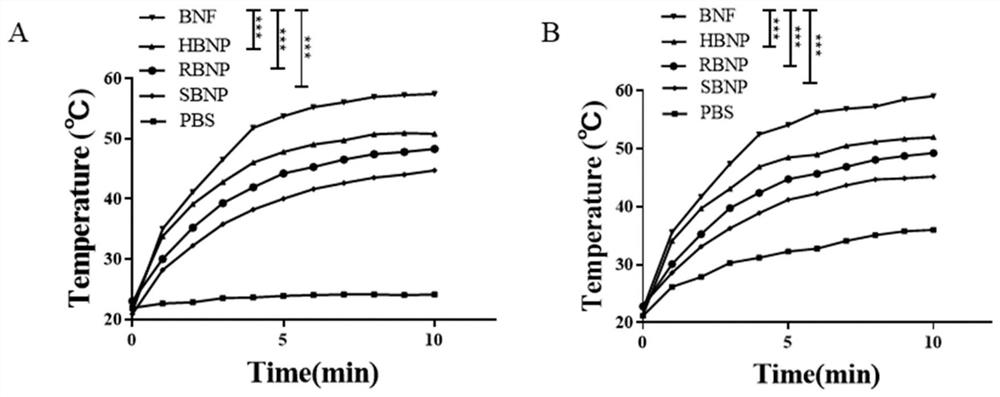Bionic bismuth nanoflower as well as preparation method and application thereof
A bismuth nano, bionic technology, applied in the field of medicine, can solve the problems of nephrotoxicity, short imaging time, low soft tissue contrast, etc.
- Summary
- Abstract
- Description
- Claims
- Application Information
AI Technical Summary
Problems solved by technology
Method used
Image
Examples
Embodiment 1
[0041] Synthesis and Characterization of Bismuth Nanoflowers (BNF)
[0042] (1) Weigh 2 g of PVP (manufacturer: Aladdin, model K29, average molecular weight: 58000), measure 50 mL of ethylene glycol, and ultrasonically dissolve it for use. Weigh 300 mg of bismuth nitrate pentahydrate, add 1 mol / L HNO 3 10 mL of the solution was fully dissolved, and 10 mg of NaOH was added, dissolved by ultrasonication, and then the prepared PVP solution was added, mixed thoroughly, transferred to a reaction kettle, and reacted at 150°C for 4 h. After natural cooling to room temperature, the precipitate was collected by centrifugation (10000 rpm, 40 min), washed three times to obtain milky white bismuth oxide nanoparticles, which were redispersed in 50 mL of purified water for use;
[0043] (2) Weigh 15 mg of sodium borohydride and 10 mL of pre-cooled purified water, add bismuth oxide nanoparticle solution immediately after dissolving, and observe that the color of the solution gradually chang...
Embodiment 2
[0046] Comparison of Photothermal Conversion Capabilities of Several Bismuth Nanomaterials
[0047] Bismuth nanospheres (SBNP), rhombic bismuth nanoparticles (RBNP) and hollow bismuth nanoparticles (HBNP), as well as bismuth nanoflowers (BNF) synthesized by the present invention, were prepared according to the methods in relevant literature, and the content of bismuth was adjusted by centrifugal concentration same.
[0048] Take 1mL from the above solution respectively in a quartz dish, 808 nm and 1064 nm laser light at 3w / cm 2 After irradiating for 10 minutes, the infrared temperature gun detects the temperature every 1 minute, and uses PBS as a control. The results are as follows: image 3 . Warp power is 3 W / cm 2 After continuous laser irradiation for 10 min, the heating capacity of BNF under dual wavelengths was significantly higher than that of SBNP, RBNP and HBNP, and BNF was the nanomaterial with the fastest heating rate among these four nanoparticles.
Embodiment 3
[0050] Preparation of erythrocyte membrane-modified bismuth nanoflowers (RBCM-BNF)
[0051] Erythrocyte membrane protein 4 mg
[0052] DSPE-PEG 2000 32mg
[0053] Bismuth Nanoflowers 16 mg
[0054] It is prepared by the following method: take an appropriate amount of freeze-dried cell membrane, use BCA kit to measure the content of membrane protein, add appropriate amount of PBS in an ice bath and sonicate for 30 s to fully disperse, then add the prescribed amount of DSPE-PEG 2000 Cell membrane vesicles were obtained by passing through 400 nm and 200 nm carbonate membranes 5 times respectively. Add the prescribed amount of bismuth nanoflower solution, and then pass through the 400nm and 200nm carbonate membranes 5 times respectively to obtain the bismuth nanoflowers modified by the red blood cell membrane.
[0055] The product was detected using a transmission electron microscope and an ultraviolet full-wavelength scanner, and the results were as follows: figure 1 (B) an...
PUM
| Property | Measurement | Unit |
|---|---|---|
| Particle size | aaaaa | aaaaa |
Abstract
Description
Claims
Application Information
 Login to View More
Login to View More - R&D
- Intellectual Property
- Life Sciences
- Materials
- Tech Scout
- Unparalleled Data Quality
- Higher Quality Content
- 60% Fewer Hallucinations
Browse by: Latest US Patents, China's latest patents, Technical Efficacy Thesaurus, Application Domain, Technology Topic, Popular Technical Reports.
© 2025 PatSnap. All rights reserved.Legal|Privacy policy|Modern Slavery Act Transparency Statement|Sitemap|About US| Contact US: help@patsnap.com



